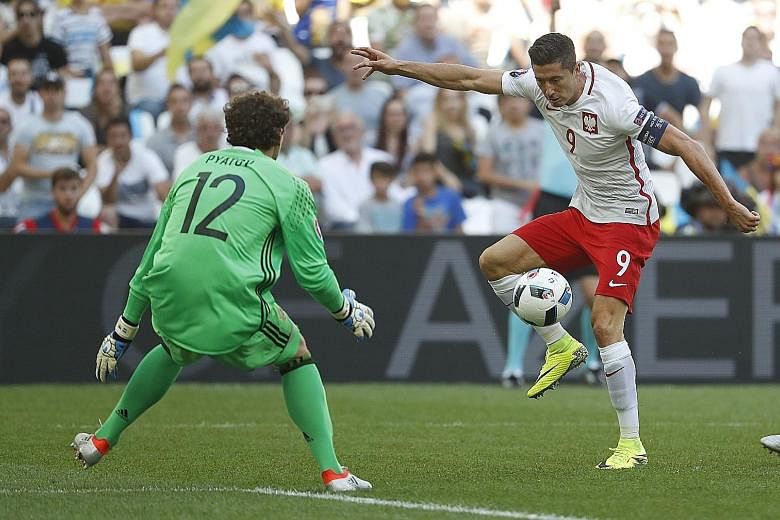It turns out that more is less. Or fewer, anyway. There are more matches in Euro 2016 but fewer goals per game.
Thus far, there have been fewer than two on average - 1.92, to be precise - in austerity Europe. The drama has been rationed, the excitement reduced.
All of which has been unexpected. The thought was that admitting the minnows would create easier encounters for the superpowers. Surely Northern Ireland, Albania, Hungary and Iceland would be thrashed at least once each.
Yet they have not been. Indeed, Northern Ireland, placed in one of the tougher pools, have conceded only twice so far. Albania contrived to come third in Group A despite scoring only once. A little could go a comparatively long way.
It is only two years since Germany scored seven times against mighty Brazil in a World Cup semi-final. Now they have three goals from three group games.
Apart from Hungary 3 Portugal 3, the spectacular scorelines - 7-1, 7-0, 5-0 and 4-2 - are again found on the other side of the Atlantic. No one has even scored four goals in a game in Euro 2016. They have in the Copa America Centenario.
-
3
-
Wales' Gareth Bale, France's Dimitri Payet and Portugal's Cristiano Ronaldo are the only ones out of more than 300 players to impress when under pressure so far.
Perhaps that is no coincidence. Arsene Wenger has a theory that South America is the only part of the footballing world that produces strikers in both quantity and quality. Europe - with academies churning out midfielders and technical, sometimes ineffectual, players - does not.
Probably Europe's two outstanding specialist centre-forwards now are Robert Lewandowski and Zlatan Ibrahimovic. Each has underachieved.
The Pole, who has been closely marked, is yet to even record a shot on target. Hampered by mediocre team-mates, the Swede only mustered one.
Misfiring forwards are factors, each for different reasons. Thomas Muller's radar is oddly faulty, Harry Kane looks tired and Mario Mandzukic has been hampered by injury.
Yet the dearth of goals cannot be attributed to them alone. Some sides have lacked creativity. Others, like England, have had impressive numbers of attempts, but the statistics camouflage the reality that few were actually clear-cut chances.
Some games have been flair-free zones; Germany's stalemate with Poland was a surprising case in point. Others have featured flair players who have struggled to replicate their club form at this Euro.
Paul Pogba's displays have been decidedly mixed. David Alaba has ranked as a major disappointment. For Raheem Sterling and Eden Hazard, the problem is that they have reproduced mediocre club displays in international football.
A general tactical trend is that, while there is a surfeit of attacking midfielders, most veer infield. A lack of natural wingers means games are compressed, making it easier to defend.
Perhaps tellingly, Croatia's out-and-out wide man Ivan Perisic is one of the players of the tournament so far. He adds another dimension to a team with plenty of passers. Less flexible sides have been frustrated. There have been displays of defiance from goalkeepers, but rather more from defensive units as a whole.
Sometimes the best way to defeat them is through brilliant individualism; once again, South America may produce more than Europe. Only three players stand out at Euro 2016 for catalytic brilliance in unpromising situations: Wales' Gareth Bale, France's Dimitri Payet and, after a difficult start, Portugal's Cristiano Ronaldo.
They have been difference makers in a tournament with too few. If the temptation is to suggest that European international football is entering a downturn, it is worth remembering that its members have won the last three World Cups and provided nine of the last 12 semi-finalists.
If there is a common denominator, it is that they have been triumphs of teamwork from groups of admirable performers but with no one of the virtuosity of Ronaldo or Lionel Messi or the explosiveness of Luis Suarez or Neymar.
And perhaps the reason for Euro 2016's goal drought is that no team has been anything like as well calibrated as Germany in 2014, Spain in 2010 or Italy in 2006.


